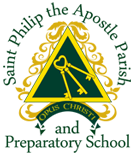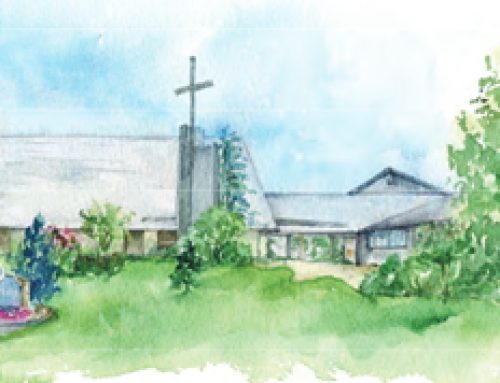PALM SUNDAY
HOSANNA IN THE HIGHEST.
MATTHEW 21:9
FROM THE PASTOR’S DESK
My Dear Parishioners:
Christians are often exhorted to unite themselves with the Cross of Christ. We are told to ‘offer it up’ in the face of suffering and inconveniences: in all tribulation, says St. John of the Cross, “remember Christ crucified and be silent.” It would be a mistake to see St. John’s advice as a rebuke or a callous dismissal of our pains, even if the ‘offer it up’ advice of some others is precisely that. For St. John, like any and every genuine mystic of the Catholic Church, knew that the Cross was anything but the Father’s callous dismissal, disinterest or even, as some Protestants claim, desertion of Christ in his suffering.
Indeed, St. Athanasius pointed out that the accounts we have of the Passion prove that the Divine intimacy of Son and Father was manifested most intensely on the Cross: for as the Son died the whole earth shook to its foundations, the dead sprang from their graves and the veil in the Father’s own house was torn in two. At Calvary God gave irrefutable testimony of his paternity which caused the centurion to cry out: “Truly this was the Son of God!” (Matt. 27:51-54)
As God did not abandon his Son in his suffering nor does he forget us in ours. It is then eminently suitable then for a Christian to maintain a deep and living devotion to Christ and him crucified, for on Calvary we too can experience the Father’s loving care and find rest for our souls. Indeed, St. Leo the Great described the Cross as “the source of all blessings and cause of all graces.” If we want to be close to God and gain his favor, then our safest refuge is the foot of the
Cross.
However, we should not only fly to Calvary for respite from suffering but also because it is the furnace of our purification. It is the place where we can become most like Christ and therefore most like what we are meant to be: children of God. Through our attachment to Christ’s Passion and Death we learn to spurn the things which are not of God and that are detrimental to our very being and cling instead to the lasting Good, that which is most true and beautiful: God himself for whom we were made. Indeed, when St. Paul tells us that he has nothing in which to boast except the Cross of Christ by which “the world has been crucified to me, and I to the world” we might think our devotion to the cross is not just fitting, but necessary (Gal. 6:14).
How then are we to form and encourage this devotion, and allow the graces from it to change our lives? Well, of course, this all comes down to prayer and meditation, but first we must commit ourselves to learning about how the event of Calvary affects our daily lives; we should seek out and learn what the Church teaches. From this basis we can begin our devotional life in whatever manner we find most conducive to entering the mystery. This of course is different for each of us and may change over time.
However, perhaps a useful beginning is giving more attention to when we make the sign of the Cross; we do it quite often after all! From this simple reflection we can move onto bringing Christ Crucified into our lives, perhaps making the sign of the Cross each morning, and offering the day to God: “Accompany me through this day Lord, as you accompanied your Son to Calvary. Bring my thoughts back to you through the day.”
At whatever stage we find ourselves in the devotional life we must remember that our journey to Calvary is always one where we shed sin: we don’t save it up under the guise of sorrow! The Cross is not just a sign of mercy but a display of God’s strength. It is better to reject the sorrows that come from folly or sin as we climb to the Cross rather than try and carry them with us. We should offer up undeserved or righteous sufferings with Jesus on the Cross and wipe out sufferings which have their origin in vice and sin by drawing strength from Christ’s Passion
So, for example, we should not say to Christ “I offer up the irritation I feel from my colleague’s conversation with you to the Father as a sign of my love” but rather “I’m a bit weak; give me the strength to see the good in my neighbor that I may then be ready to pick up my cross and follow you.”
Perhaps the best thing is not to overthink, but rather to get moving. The path is laid out before us, the burden is light and good to bear. With Christ crucified we can draw strength from the Father’s love and return that to him through sacrificial living and pursuing ever closer union with him who made us.
Peace,
Fr. Monteleone
To read complete bulletin click here



